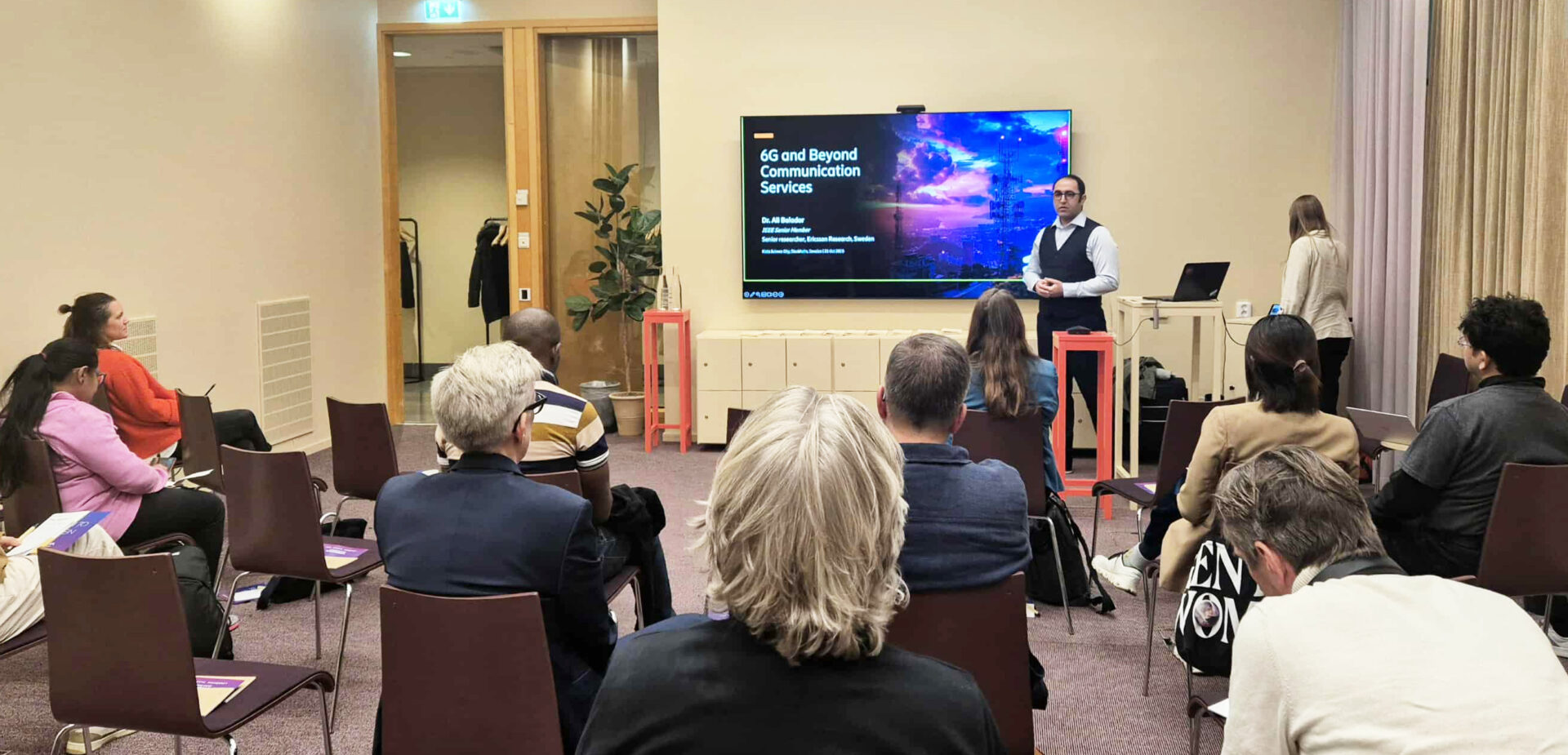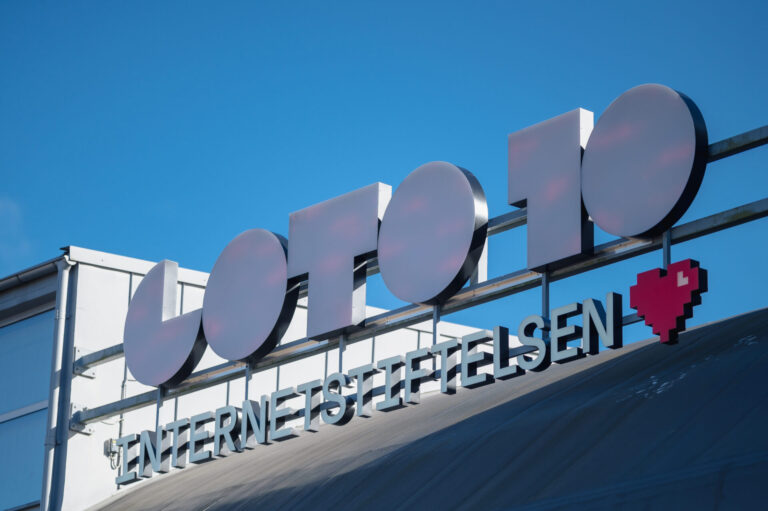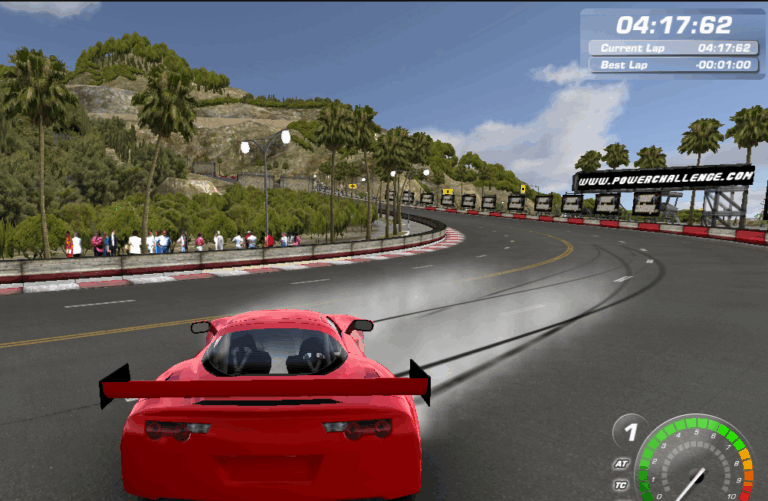The national career lab: Shaping the future of connectivity, held on October 21st at Kista Science City and online, became an arena where academia, industry, and government met to explore how connectivity technologies — from AI and IoT to 5G and 6G — are redefining Sweden’s innovation landscape.
Organized under the Switch to Sweden initiative by Linköping Science Park, the event highlighted not only the technological transformation ahead but also the human and collaborative dimensions that make Sweden a global innovation leader.
Key takeaways
- Sweden is a global leader in connectivity technologies and is now expanding its national efforts to develop 6G and next-generation digital systems.
- The skills and knowledge required are broad, spanning communication, AI, network security, and the ability to learn new topics quickly.
- Understanding how technologies fit into wider systems and contexts is essential for future development and, therefore, talent acquisition.
- Sweden’s innovation ecosystem is ready to collaborate, and international students who are eager to learn and contribute are welcome to join this growing network.
A broader perspective for a connected future
The national career lab demonstrated that when different sectors and cultures meet, innovation deepens. Sweden’s competitiveness in connectivity is rooted not only in cutting-edge technology but also in collaboration and diversity of thought. Through initiatives like Switch to Sweden, international talents are invited to become part of this journey — to contribute to research and industry, to innovate with purpose, and to help build the sustainable digital society of tomorrow.
Preparing international talent for Sweden’s labour market
During the Innovation Career Lab workshop, participants explored how global trends — such as technological change, sustainability, and migration — are reshaping career opportunities for international professionals in Sweden.
Employability today depends on more than technical expertise. Companies value collaboration, communication, and flexibility as essential skills in an innovation-driven economy.
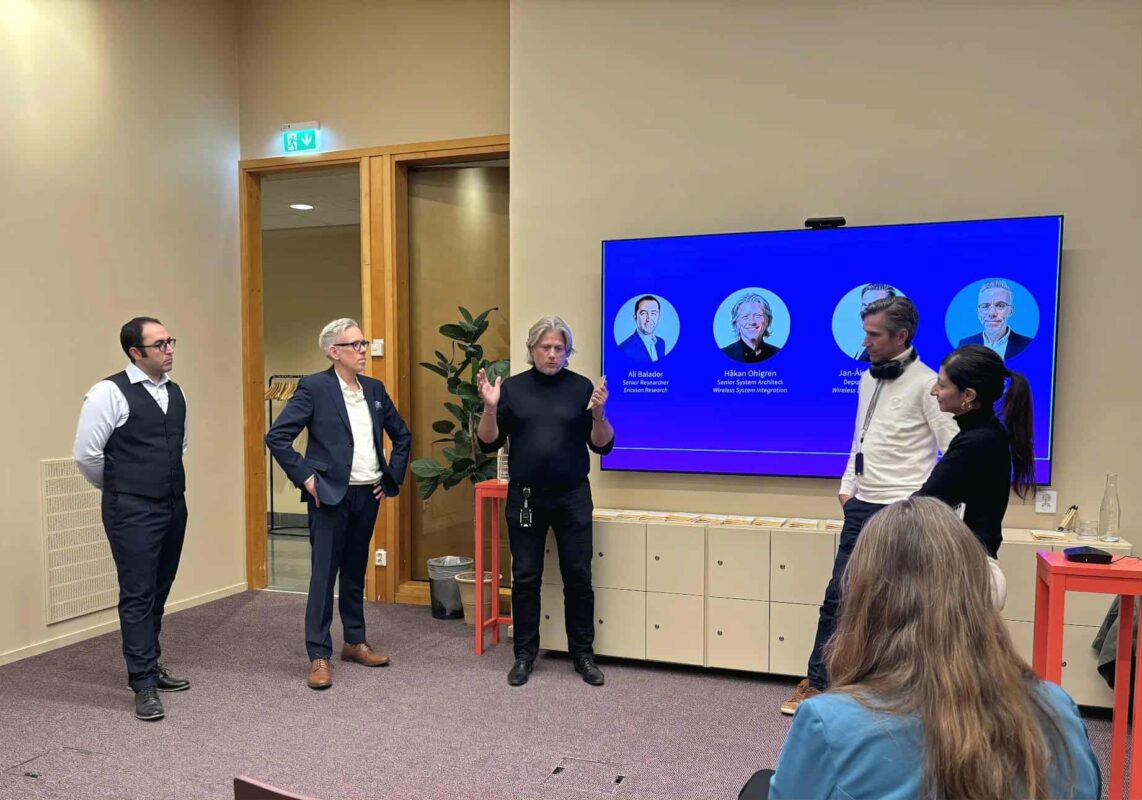
A panel featuring Ali Balador (Ericsson Research), Håkan Ohlgren and Jan-Åke Lindqvist (Sigma Connectivity), and Ulf Seijmer (Induo/AKKR8) shared a common message:
“Technical expertise alone is no longer enough to succeed — initiative, teamwork, and a willingness to learn are key.”
Through direct discussions with companies, students gained insights into how to prepare for the Swedish labour market, by combining competence with creativity and contributing actively to Sweden’s innovation ecosystem.
Triple helix in action
Wireless communication is a cornerstone of modern society, and advancing it demands close collaboration between industry, academia, and government. Part of this effort is led by Vinnova and the Swedish Research Council, which have the government assignments to strengthen Sweden’s global leadership in wireless systems and connectivity research. A total of SEK 250 million has been allocated for this program between 2024 and 2026.
As Sverker Brundin, Programme Manager for Digital Transformation, emphasized “Vinnova’s goals are clear: innovation, competitiveness, and collaboration.”
This investment reflects Sweden’s long-standing tradition of excellence in wireless technology — from pioneering early mobile systems to leading the world in 5G. A key part of this initiative is competence development — with SEK 22.1 million invested in master’s theses, postdoctoral fellowships, and talent programs. Vinnova also works closely with major European initiatives such as SNS JU – Smart Networks & Services, the EU’s partnership program for 6G under Horizon Europe, and Sweden’s Advanced Digitalisation program, where 6G is one key focus area. These connections create broad opportunities for international engagement and collaboration.
In parallel, Jan Söderström, Chair of the Program Council for Digital Infrastructure and Communication, presented Advanced Digitalisation — a national programme investing SEK 2.3 billion to drive research in digital infrastructure, electrification, circular industry, transport automation, and cybersecurity.
Together, Vinnova’s 6G initiative and Advanced Digitalisation form the backbone of Sweden’s digital strategy, combining innovation, competitiveness, and collaboration to build a sustainable and inclusive digital future. However, networks, collaboration, and spaces to meet, explore, and test ideas are essential to turn these ambitions into concrete action.
IoT World – The largest cluster for internet of things in Sweden
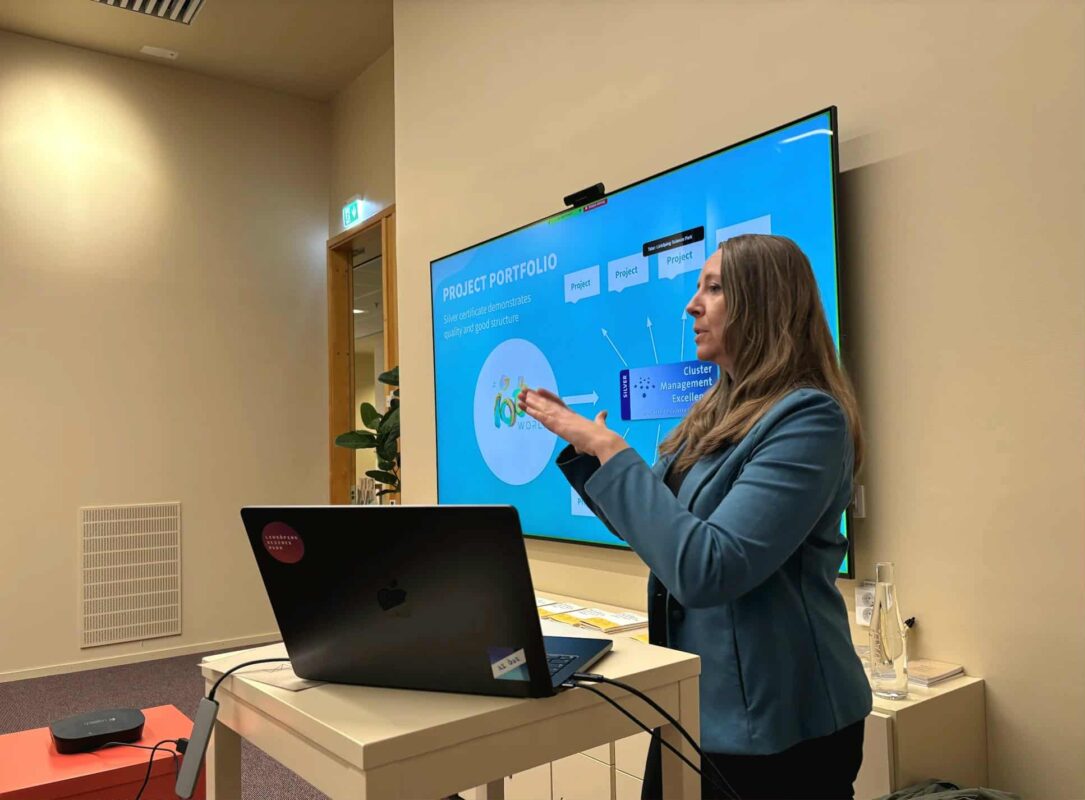
Ulrika Johansson from IoT World presented how this national cluster connects more than 130 member organizations, accelerating the use of Internet of Things (IoT) technologies across all sectors of society.
As an open knowledge platform, IoT World facilitates processes, test environments, and knowledge exchange where members share experiences and co-create innovations. It also offers a space for professional learning, with activities designed around member needs and market trends. By connecting academia, industry, and the public sector, IoT World enables Swedish organizations to collaborate for sustainable growth, ensuring that IoT continues to play a central role in Sweden’s digital transformation.
Ericsson: 6G and the future of edge intelligence
From the corporate side, Ali Balador, Senior Researcher at Ericsson Research, shared insights into how edge computing, and advanced network services will define the future of 6G. His presentation, “6G Beyond Connectivity,” highlighted how next-generation networks will evolve into service-oriented, intelligent, and sustainable infrastructures:
- 6G as a service: Future networks will deliver not only communication but also integrated compute, control, and sensing capabilities.
- Joint compute–communication–control: Advanced use cases will require optimization between computing, transmission, and real-time control.
- Edge computing as a service: Edge systems will enable low-latency, efficient services, though challenges remain in mobility and data management.
- Use case impact: In logistics and robotics, 6G will enable dynamic task management and real-time intelligent decision-making.
Get involved!
We want to thank all speakers, partners, and participants who made this event possible.
For students and young professionals, this is only the beginning. You are warmly invited to learn more about these national initiatives, start student projects and master’s thesis opportunities, and connect with the key players shaping Sweden’s connectivity ecosystem.
Together, we can continue building a smarter, more connected, and sustainable future for all.




